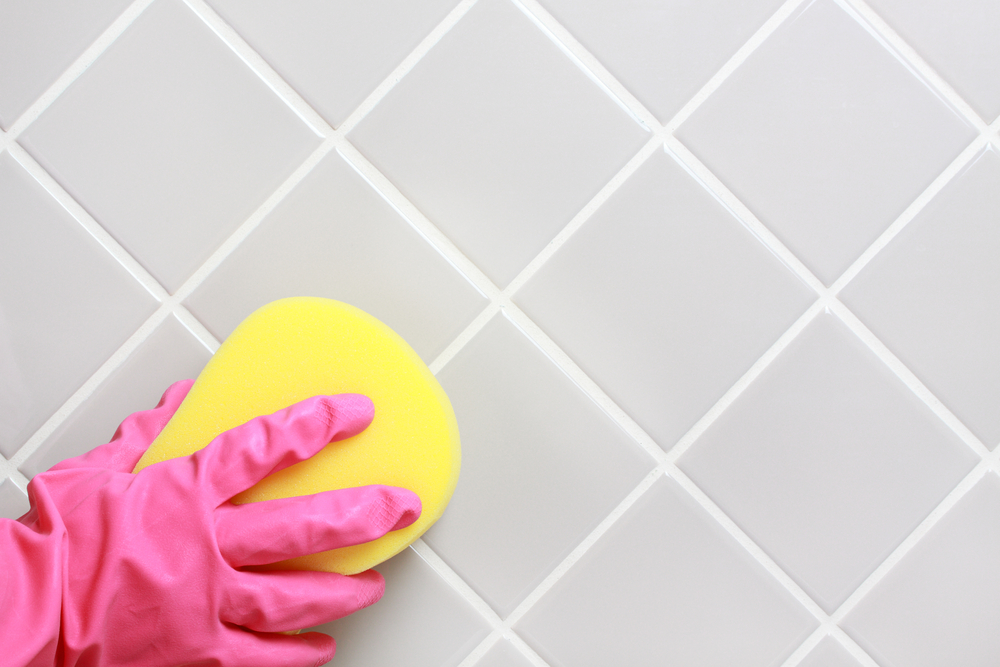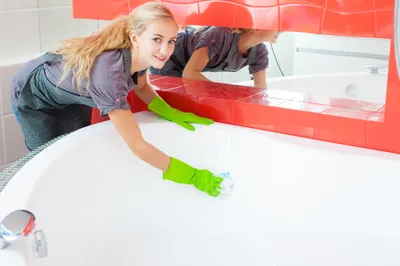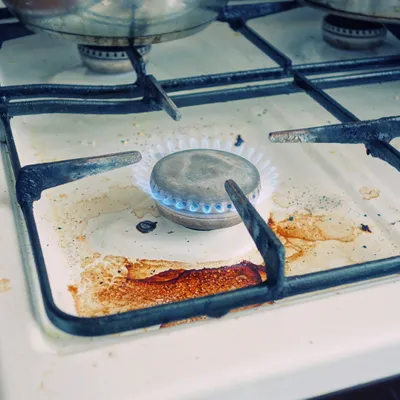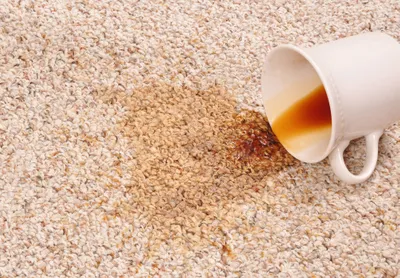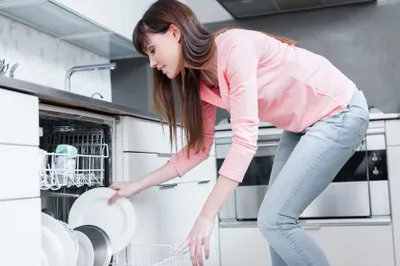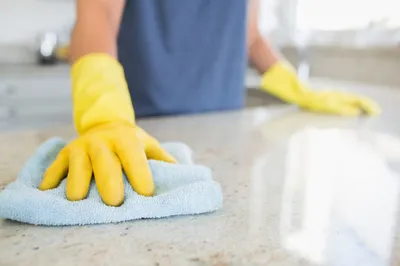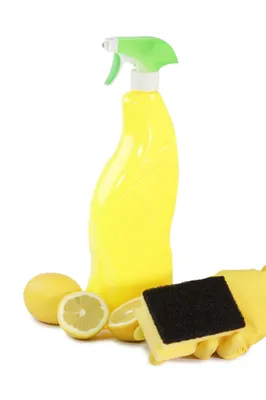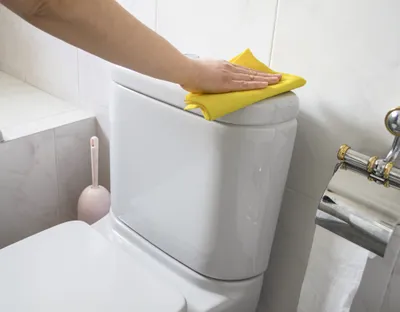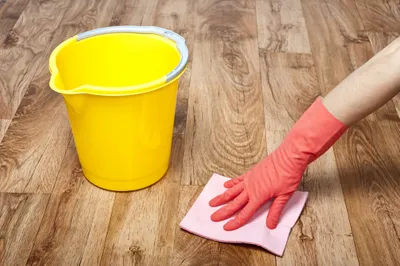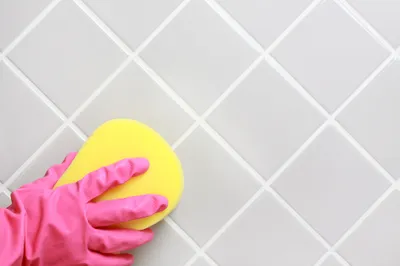Most store bought household cleaners contain a lot of harmful chemicals—both to the environment and to the person using it, and they pose a health risk to children and pets. However, you can protect both your kids and your pets from exposure to chemicals typically found in household cleaners by creating your own, chemical-free products.
Many of the ingredients you need to make your own can be found in your kitchen, making homemade cleaners economically viable too. And a lot of these simple, chemical-free cleaners actually work better than the store-bought kind. Just make sure that you label mixing containers and spray bottles appropriately, and to be extra cautious, keep them out of reach of children and pets.
Stop worrying about the harmful chemicals and create these ten pet-safe, kid-safe, green household cleaners…
1. Clean Bathtub Scum and Build Up
One of the most annoying places to clean thoroughly is your bathtub. Residue from shampoo and other soaps build up over time. Combine that residue with hard water build up and you end up with a ring around your bathtub that seems impossible to scrub off. Try using baking soda and a bit of water, mix it into a paste in a bowl, then scoop the paste onto the areas you’re trying to clean and let it sit for 10 minutes (or longer depending on how bad the soap scum is). Take a sponge and scrub the baking soda paste until it breaks through the build up. Trust me; the gritty texture of baking soda will help break through it.
2. Cut Through Grime In Your Oven
Home cooked meals are always a crowd pleaser, but the mess they leave behind builds up over time—grease splatters and food spills over edges, leaving behind a mess. To break through the grime and food, baking soda is again an effective cleaner. Scrape off any food you can using a non-abrasive item, like a spatula. Then, using a mixture of water and baking soda, spread it over the dirty spots and let sit for 10 to 20 minutes. Scrub with a non-abrasive sponge. You may have to do this a few times before it all comes off, or add some vinegar on top of the baking soda in extra tough spots.
3. Remove Tough Carpet Stains
Toddlers, children, and pets are often sprawled out on the carpet playing with toys, and pets enjoy afternoon snoozes in front of windows. Keeping your carpets clean when you have kids and pets is pretty difficult, but for the times that red juice is spilled or your pet decides to use the carpet as its bathroom, there’s a green, homemade cleaner that’s tough on stains but safe for your kids and pets. Mix 1 tablespoon of baking soda, 3 tablespoons of vinegar and two cups of water in a spray bottle. Spray the stain thoroughly with the mixture and scrub with a cleaning brush. Let sit for 5 or 10 minutes, then blot dry.
4. Make Your Windows Spotless
Many store bought window cleaners contain harmful chemicals, and spraying your windows with them puts these chemicals in the air. While everyone wants their windows to be clear and shine, a green household cleaner that protects your kids and pets is the best way to go. Using a spray bottle, fill with equal parts of water and vinegar. Spray and wipe clean with a cloth that won’t leave a trail of fibers behind. This mixture can be used throughout the house and it’s worth keeping a bottle of it to be available whenever you need it.
5. Remove Rust From Your Dishwasher
An often neglected part of household cleaning is your dishwasher, but it can just as much in need of a good clean as other kitchen appliances. After time, rust begins to build up, leaving your dishwasher looking, and smelling, dirty. To break through the rust, use powdered lemon or another powdered citrus drink. The powder is made up of citric acid, which can cut through rust stains. Pour the powder directly into the detergent holder and run a regular wash cycle (without any dishes inside). Repeat as necessary to get rid of rust and make your dishwasher look and smell new again.
6. Deodorize Your Kitchen Counters
Baking soda is a common ingredient in pet-safe, kid-safe, homemade cleaners. The gritty texture breaks through tough spots, as well as breaks down the stains and build up. Kitchen counters, especially speckled ones, are often thought to be clean but the pattern hides a lot of spills and dirty spots. These areas can end up causing an unsavory scent and bacteria will eventually build up. To prevent this from happening, using a mixture of baking soda and water, spray and use a sponge to scrub down and get rid of hidden food and stains. Finish by wiping away the leftover baking soda with a cloth.
7. Kill Bacteria On Surfaces
When you have kids and pets running around your home, it’s easy to worry about the bacteria they come in contact with and spread to their toys and other children. There are tons of anti-bacterial wipes available to purchase but a lot of them are not green products. The best, most effective, and ultimately, cheapest way to remove bacteria from household surfaces is by using lemon juice. The citric acid is a natural bacteria killer and one of the easiest ways to get rid of most household bacteria. A mixture of water and lemon juice will do the trick quickly and effectively.
8. Clean Your Toilet Bowl
Baking soda saves the day again. For an eco-friendly toilet bowl cleaner that isn’t harmful to your pipes or the sewage process, sprinkle baking soda around the bowl. Let the baking soda’s deodorizing agents do its work, then pour some vinegar over the baking soda. Use your toilet bowl brush to scrub at stains and build up, similar to the way you would with other toilet bowl cleaners. The combination of vinegar and baking soda will break through tough spots while cleaning your toilet with safe ingredients. But make sure you don’t mix this homemade cleaner with store bought cleaners, as the result can be toxic.
9. Make Your Hardwood Shine
Hardwood flooring can be difficult to maintain, especially with kids and pets running around. But luckily, it’s possible to keep your floors looking shiny and healthy, while at the same time avoiding cleaners that can be harmful to your kids and pets. Mix 3 teaspoons of white vinegar, 16 ounces of water, and a drop or two of your favorite essential oils. The water and vinegar are what will clean the floors, while the oil will override the vinegar scent. You only want the cloth mop to be damp when you wash the floors—too much of the mixture can damage the finish on your hardwood.
10. Remove Mold and Mildew From Grout
Shower stalls and bathtubs tiles and grout are susceptible to mold and mildew from the dampness associated with showering. If you don’t completely dry down your shower or tub after use, you’ve likely seen mold and mildew build up, and it can be difficult to get rid of. For situations when there’s just a little bit of it, mix an even amount of water and vinegar, spray on affected areas, and scrub with a cleaning brush. If there’s a lot of mold or mildew, make a paste of baking soda and water, and scrub those tough areas. These mixtures are both kid-safe and pet-safe, and easy to create.
